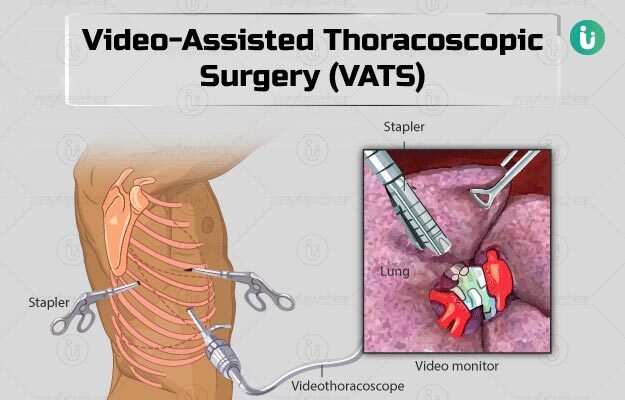VATS treatment in Delhi
الجسم

Video-assisted thoracoscopic surgery (VATS) is a type of surgery for diagnosing and treating a variety of conditions involving the chest area (thorax). It uses a special video camera called a thoracoscope. It is a type of minimally invasive surgery. That means it uses smaller cuts (incisions) than traditional open surgery. One common reason to do VATS is to remove part of a lung because of cancer.
You have 2 lungs: a right lung and a left lung. These lungs connect to your mouth through a series of tubes. Through these tubes, the lungs bring oxygen into the body and remove carbon dioxide from the body. Oxygen is needed for all functions of your body. Carbon dioxide is a waste product that your body needs to get rid of. Most people can get by with having part of a lung removed, if needed. Usually, the remaining lung tissue can provide enough oxygen and remove enough carbon dioxide .
During VATS, your surgeon makes several small cuts on the chest wall. The provider puts a special camera and other small tools through these cuts. He or she might use these tools to remove part of the lung, drain fluid from the lung, or do a procedure on the heart or other region.
You may recover more quickly after VATS than with the traditional open approach. Healthcare providers can use VATS to do many procedures that used to need traditional open surgery.
Why might I need VATS?
Healthcare providers use VATS for a wide variety of conditions involving the thorax. These include conditions of the lung and heart. You might need it to remove a small portion of tissue if you have cancer. Your healthcare provider might use VATS to biopsy part of the lung, the lymph nodes, the tissue around the lung, the tissue around the heart, or the esophagus.






تعليقات